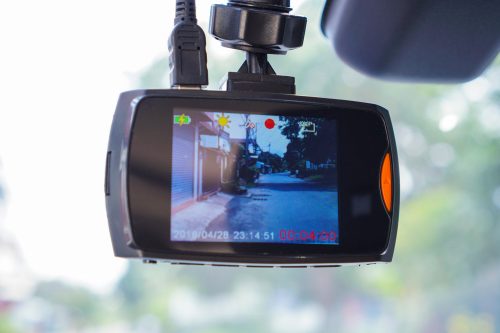
Most people have seen footage that comes from a police officer’s dash cam after an incident, but fewer have seen footage from a dash came taken in the car of a civilian. For this reason, people often wonder if it is legal. The answer is that it varies by state but in California it is legal to have one – under certain circumstances. Read on to learn more and then contact The Law Offices of Larry H. Parker at 800-333-0000 if you have been involved in an accident and need a legal opinion.
Dash cams do more than you may realize
Many people think of dash cams as nothing more than cameras that provide a visual record of what happened. However, they can track and capture many other things, such as the speed of a driver, whether or not people in the vehicle were using seat belts, and patterns of braking and stealing. California legislators have made it clear that they believe that installing dash cams in people’s cars may encourage them to drive safely and actually lower the number of car accidents each year.
California laws regarding dash cams
Though it is generally legal to have a dash cam installed, there are limitations. The dash cam must be installed in a place that allows airbags to deploy normally. If the cam is installed in the lower right hand corner, it cannot be bigger than seven square inches while one installed in the upper center of the windshield cannot be larger than five square inches.
If a dash cam is capable of picking up both video and sound, then the owner of the vehicle must inform any passengers in their vehicle that everything said and done in the vehicle will be recorded. The data picked up and stored by the dash cam is considered the property of the person driving the vehicle.
It was once illegal to install dash cams in privately owned vehicles
It wasn’t long ago that it was indeed illegal to install a dash cam in a private vehicle. In 2011, regulations were passed that clarified where the cameras could be placed and what the requirements were for notifying passengers of the cameras.
Dash cams are generally admissible in civil and criminal court
In most cases, the data stored on a dash cam should be admissible for a person who is being charged with a criminal offense or a person who is being sued. There are exceptions. For example, if you record someone and do not tell them, then it may not be admissible because the recording would not have been legally obtained.
If you have been in any type of accident and have dash cam footage to prove your side of the story, consider talking to a personal injury attorney who can help you take the next legal steps. Contact The Law Offices of Larry H. Parker at 800-333-0000 now for your free legal consultation.



